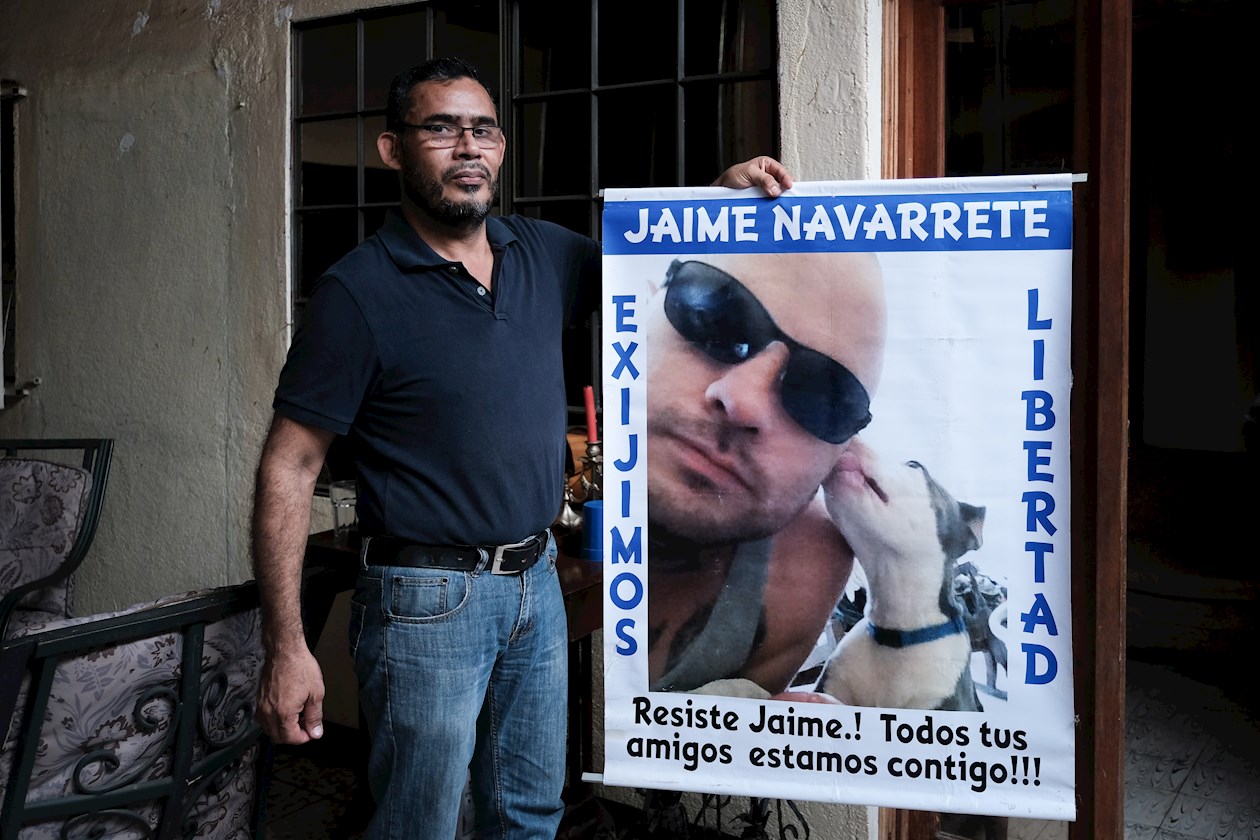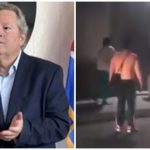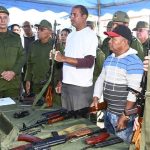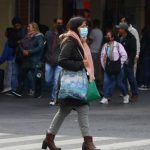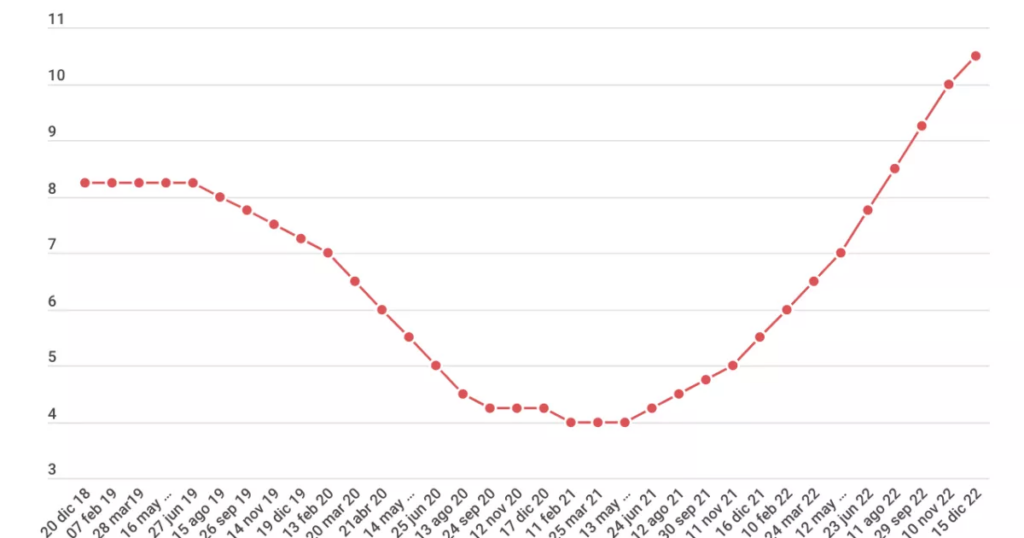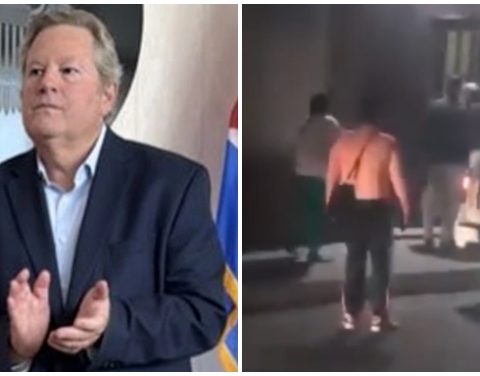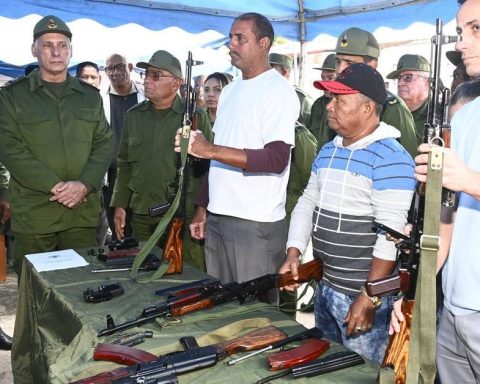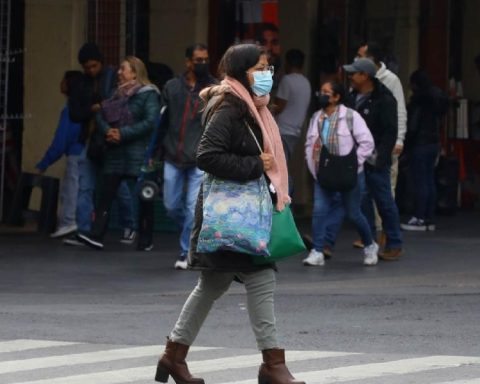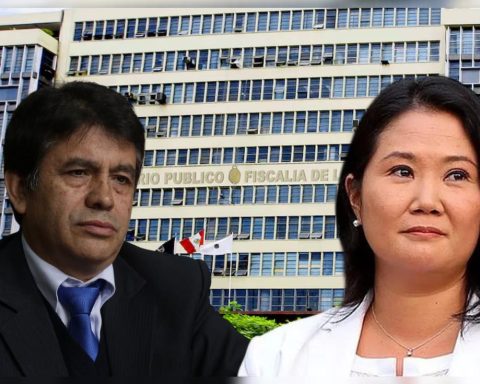For four years, until the early hours of Friday, November 25, retired military Rodrigo Navarrete Vanegas, 59, called for the release of his nephew, Jaime Navarrete, one of the 235 prisoners of conscience of the Daniel Ortega y Rosario regime. Murillo. This was the case until the raid on his house in Managua, when he was abruptly turned into another prisoner of conscience.
Two days after the operation, the Public Ministry accused Navarrete, who suffers from cardiovascular problems, hypertension and hearing problems. They accuse him of committing the alleged crime of “illegal carrying or possession of firearms and ammunition,” according to judicial file 025588-ORM4-2022-PN.
Judge Roxana Katiusca Martínez Rosales, of the Eighth Local Criminal Court, will take charge of the process, while the Prosecutor is Tania Vanessa Lara Rodríguez. The court has a history of convicting opponents such as Carlos Bonilla López, accused of committing the murder of riot policeman Hilton Manzanares Alvarado, one of the first three victims of the massacre in 2018. On this case, the report by the Group of Independent Experts (GIEI ) had expressed doubts about the alleged guilt.
The “file” is different from that of other political prisoners. The Prosecutor’s Office seeks to prove a common crime, which contrasts with the judicial fabrications of “propagation of false news” or “conspiracy to undermine national integrity”, with which they have persecuted opponents and religious, including the Bishop of Matagalpa , Rolando Álvarez, recently accused in the midst of a repressive escalation against the Catholic Church.
We recommend: “Cynical” and “infamous” accusation against Bishop Rolando Álvarez
The authorities seem to repeat the script they wrote against the detainee’s own nephew, Jaime Navarrete Blandón, who was imprisoned in 2018, was released in 2019 thanks to an Amnesty Law and was later recaptured. The Supreme Court of Justice upheld the sentence for “illegal possession of weapons and drugs” in February 2021, circumscribing it to a common crime case, although his remarks against the dictatorship were public and he denounced on several occasions that the police authorities were besieging him.
The inconsistencies of the detective story
The narration of the events of the capture of the retired soldier does not match the version of the witnesses of his arrest. While they assured 100%News that the capture occurred at dawn, in the official documents they maintain that it was not until 10:20 in the morning of November 25 that a “technical police investigation team” was formed.
Inspector Gerardo Antonio Hernández Muñoz, detective from Managua’s III police district, maintained that this team was made up of the “ocular inspection officer” Bryan David Sequeira Díaz and Harvy Moisés Calderón Lazo, and that they acted after “receiving information” against the retired military. They went to the detainee’s residence, of which they even—they claimed—found the doors open.
“It will be proven with the witness that, upon arriving at the main door of the house, the main door was open and upon entering the interior of the building they found the defendant inside his room, for which reason the witness put him in knowledge of the reason for the search, ”explains the prosecutor.
Also: Six ways in which the human rights of political prisoners are violated
However, it is public that since 2018 the Government has imposed a de facto police state, through which it has violated the freedoms of citizens, while it has financed a repressive apparatus that prevents any demonstration, persecutes civil society organizations and it monitors subjects of “interest”, whom the Ortega-Murillo regime considers a threat.
In this state of general lack of guarantees in Nicaragua, the number of political prisoners has increased, reporting captures that have been considered “temporary forced disappearances”, because the relatives do not know where the prisoners are taken and then they appear at the investigation center. of El Chipote, denounced for years as a torture center by human rights organizations.
They found a “blue and white flag”
The search against Navarrete was supervised by Deputy Commissioner Ronald González, chief of detectives for District III in the capital. During it, the Police said that they found ammunition: 23 22-caliber cartridges, 18 9MM caliber cartridges, two AK rifle cartridges, a salvo cartridge, a Glock-brand plastic magazine, a bag, a knife, an axe.
But it is also striking that the investigator details that they found a blue and white cloth flag —of Nicaragua—, which has been considered subversive by the regime since 2018, when thousands of citizens took to the streets to protest to demand the resignation of Ortega and Murillo. The response was a brutal repression that left hundreds dead.
Besides: The “evidence” against Oscar René Vargas: police officers and publications on social networks
They also seized computers, a cell phone, and a digital camera. “With said investigative act, it will be proven in an oral and public trial during the search carried out in the home (of the accused) munitions of different calibers for civilian use and restricted use were seized, which the accused possessed illegally without having the respective authorization. of the DAEM (Directorate of Weapons, Explosives and Ammunition, attached to the Police)”, said the prosecutor.
The arrest warrant was signed at 1:10 pm on November 25, with which the police say they show that “his rights and constitutional guarantees” were respected. In addition to the testimonies of the “investigators”, there are the certificates of the authorities on the classification of ammunition, DAEM records, and the validation of the search carried out in this case by the judge of the Sixth Penal District Court of Managua, Rolando Salvador Sanarrusia Munguia, sanctioned by the United States Y a notorious persecutor of opponents and their relatives, whom they prosecuted when they could not locate the former in their homes.
Last year, the digital newspaper Onda Local published the testimony of Rodrigo Navarrete, demanding the freedom of his nephew. In that conversation, he denounced that his relative was confined in “La 300”, known as El Infiernillo, in the Jorge Navarro Penitentiary System in Managua and the unjust causes of his kidnapping.
“Jaime was moved to see how the students were beaten in Camino de Oriente, the UCA and this motivated him to support the students with food, morally and that was his crime, the one that the Sandinistas accused him of. They prefabricated with their tricks, they said, that Jaime had murdered a paramilitary, a supporter of the regime, he was sentenced to 23 years in prison. He came out in the first amnesty, but his freedom was little, ”explained his uncle then, months before becoming another prisoner of conscience.
